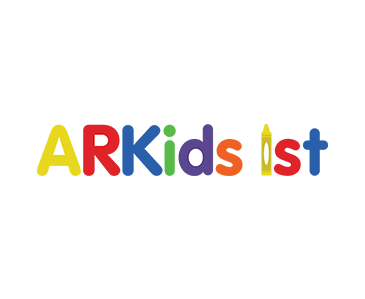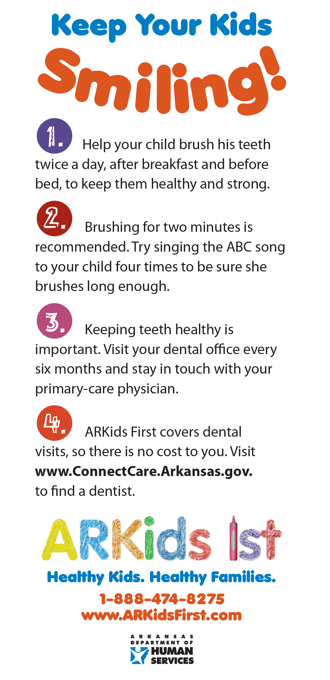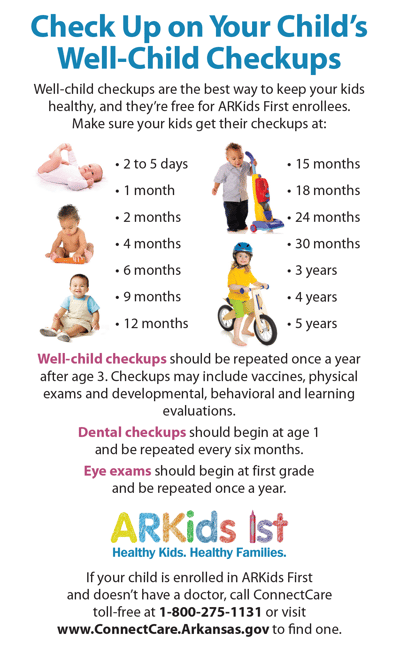Encouraging Preventive Dental Care in At-Risk Communities
37,879 Children Reached Through Creative Outreach Efforts
The Communications Group partnered with ARKids First to develop an innovative school-based campaign that empowered at-risk families to prioritize preventive dental care, achieving significant engagement and measurable results.
About the Project

ARKids First, Arkansas’s version of the Children’s Health Insurance Program (CHIP), identified a concerning trend: nearly 40% of ARKids-enrolled children hadn’t visited a dentist in the prior year. Recognizing the importance of dental health as a gateway to overall health, the Communications Group was tasked with developing a campaign to encourage at-risk families to use their dental benefits for regular checkups. With a limited budget, the team crafted an innovative outreach program that combined data-driven insights with creative strategies.
The Challenge
Despite having dental benefits, many ARKids-enrolled families were not utilizing their coverage for preventive care. The goal was to target families in counties with the lowest dental checkup rates and inspire them to prioritize routine care while working within budget constraints.
The Solution
The Communications Group focused on an unconventional, school-based outreach strategy targeting parents and guardians of elementary school children. This included:
- Building Partnerships: Collaborating with school nurses and health partners to distribute information about the importance of dental checkups.
- Resource Distribution: Creating and distributing the "SMILING Cards" and ARKids-branded toothbrush kits to schools across 75 counties.
- Social Media Campaign: Launching a 30-day social media content series encouraging families to schedule appointments.
- Follow-Up Surveys: Conducting post-campaign surveys to measure partner engagement and campaign effectiveness.
The strategy was designed to put actionable resources directly into the hands of parents while emphasizing the importance of preventive care.


The Results
The ARKids First Dental Outreach campaign achieved remarkable success, directly impacting families across 75 counties in Arkansas. The campaign distributed toothbrush kits and "SMILING Cards" to reach 37,879 children, providing critical dental health resources to underserved communities. A post-campaign survey revealed that 85% of health and school partners found the initiative valuable and expressed willingness to participate in future efforts. The campaign also achieved a 39% response rate among partners, confirming the effectiveness of the unconventional, school-based approach. By empowering families with actionable resources and fostering collaboration among community stakeholders, the campaign reinforced the importance of preventive dental care and significantly improved awareness in at-risk populations.
Connect With ComGroup
Let's chat about your marketing goals
